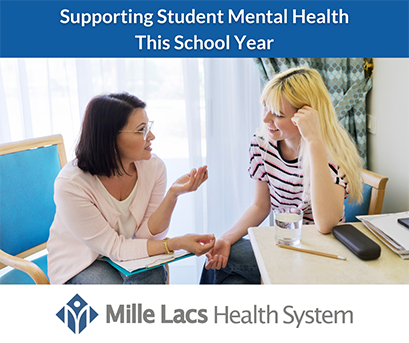Supporting Student Mental Health as the School Year Begins
August 14, 2025
The start of a new school year can bring a mix of emotions. While many students look forward to seeing friends and returning to familiar routines, others may feel anxious about new expectations, academic demands, and social changes. According to a recent report from the Centers for Disease Control and Prevention, 4 in 10 students have reported persistent feelings of sadness or hopelessness. These shifts can affect mental health, especially as children and teens transition from a relaxed summer schedule to a more structured school environment.
Some students express their concerns openly, but others may show signs of stress in more subtle ways. Changes in sleep or appetite, complaints of headaches or stomachaches, irritability, difficulty concentrating, or withdrawal from usual activities may signal emotional distress. Reluctance to go to school, especially if persistent, may also be a sign that a student is struggling to adjust.
Establishing healthy routines can help students feel more prepared and confident. Aim for consistent bedtimes and wake-up times to support rest and focus during the day. Plan predictable after-school hours that include time for homework, meals, physical activity, and unstructured relaxation. Limiting screen time, particularly in the hour before bed, can improve sleep quality and reduce overstimulation.
Open, supportive communication at home plays a key role in helping children manage stress. Create space for daily check-ins and listen attentively without rushing to offer solutions. Questions like “What was the best part of your day?” or “Did anything surprise you today?” can encourage reflection and conversation. Sometimes, simply feeling heard is enough to ease a student’s anxiety.
For some children, emotional challenges may go beyond the typical adjustment period. When concerns persist or interfere with daily functioning, additional support may be helpful. School counselors, pediatricians, or behavioral health professionals can work with students and families to develop healthy coping strategies and provide guidance tailored to the student’s needs.
Mille Lacs Health System offers a full spectrum of behavioral health services to support children, teens, and families throughout the school year. The MLHS Behavioral Health team includes licensed mental health professionals who provide assessments, therapy, and medication management for patients of all ages. Services are available both in person and through secure telehealth appointments, with telehealth visits taking place in private MLHS clinic exam rooms to ensure convenience and confidentiality.
